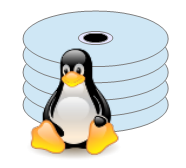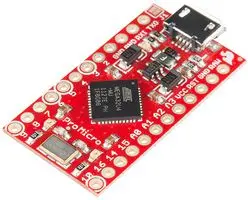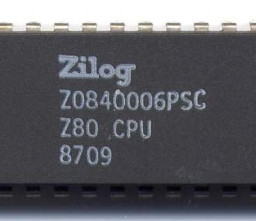General computing
 The Gemini Protocol in 2026: growing, but still not setting the Internet aflame (Feb 2026)
The Gemini Protocol in 2026: growing, but still not setting the Internet aflame (Feb 2026)The Gemini protocol has been around for over five years, but the world-wide web remains broken. This articles reviews what's changed for the better over the last five years -- and what hasn't.
Categories: general computing, retrocomputing
You'd think you could improve the cooling of a laptop by fitting extra fans under its air intakes. Seems not.
Categories: electronics, general computing
 No, eBay: it isn't free to sell (Jul 2025)
No, eBay: it isn't free to sell (Jul 2025)Despite eBay's claim, it isn't now free to sell for private sellers. Here's why.
Categories: general computing
 No good deed goes unpunished: can we now be sued over software we give away? (Feb 2025)
No good deed goes unpunished: can we now be sued over software we give away? (Feb 2025)For too long, mega-corporations have been able to avoid liability for defective software. But will upcoming changes to the law adversely affect those who distribute open-source software free-of-charge?
Categories: general computing, security
 Using Windows is like smoking (?) (Dec 2024)
Using Windows is like smoking (?) (Dec 2024)As the Microsoft Windows user experience continues to worsen, what should Linux advocates do?
Categories: general computing, Linux
 How de-Googled is Lineage OS? (Oct 2024)
How de-Googled is Lineage OS? (Oct 2024)Lineage OS is based on the Android Open-Source Project, whose primary maintainer is Google. To what extent can it be considered Google-free?
Categories: general computing, degoogling
 One month with Gentoo (Jul 2024)
One month with Gentoo (Jul 2024)Will my Gentoo journey be coming to an end after the first month?
Categories: general computing, Linux
 Gentoo Linux -- is this the solution to the Winux problem? (Jun 2024)
Gentoo Linux -- is this the solution to the Winux problem? (Jun 2024)Even seasoned Linux developers speak of Gentoo in hushed tones. It's not for the faint-hearted, that's for sure. But how stout-hearted must you be, for Gentoo to be appropriate?
Categories: general computing, Linux
 Do you need to wipe that hard drive? And can you? (May 2024)
Do you need to wipe that hard drive? And can you? (May 2024)Is it safe to sell a used hard drive without securely erasing all the data? And is it even possible to erase all the data, even if we want to?
Categories: general computing, security
 Adventures with Artix (Mar 2024)
Adventures with Artix (Mar 2024)Artix is a low-resource Linux that can be configured to run well on old, low-powered computer hardware. In this article, I describe my first attempts at setting it up.
Categories: general computing, Linux
 What you give up, when you opt out of the surveillance economy (Aug 2023)
What you give up, when you opt out of the surveillance economy (Aug 2023)Is it possible to live without Google and the like, and still use modern, portable computing devices? I still don't know.
Categories: general computing, degoogling
 What exactly is 'saturation'? (Mar 2023)
What exactly is 'saturation'? (Mar 2023)Most image editing applications provide a 'saturation' adjustment; some provide adjustments of 'brilliance', 'chroma', and other things. This article explains what these terms actually mean.
Categories: general computing
 Yet another Darktable/Lightroom comparison (Mar 2023)
Yet another Darktable/Lightroom comparison (Mar 2023)Darktable isn't supposed to be an alternative to Adobe Lightroom, but many people hope to use it as one. After all, Darktable's (free) pricing is very appealing. Here are my views on whether a move to Darktable makes sense.
Categories: general computing, Linux
 Why I won't be dumping DuckDuckGo over Ukraine (Mar 2022)
Why I won't be dumping DuckDuckGo over Ukraine (Mar 2022)Does controlling web search rankings amount to censorship? Does it matter if it does?
Categories: general computing, law
 Samsung DeX -- the good, the bad, and the ugly (Nov 2021)
Samsung DeX -- the good, the bad, and the ugly (Nov 2021)The advantages and disadvantages of Samsung DeX on an Android cellphone, compared with a desktop or laptop computer.
Categories: general computing
 Audible's returns policy -- who wins, who loses? (Aug 2021)
Audible's returns policy -- who wins, who loses? (Aug 2021)Audiobook supplier Audible has recently caused controversy by changing its long-standing one-click, no-questions-asked returns policy. Why? And who stands to gain and lose from this change? What are the broader implications?
Categories: general computing
 Spy pixels -- how worried should we be? (Aug 2021)
Spy pixels -- how worried should we be? (Aug 2021)'Spy pixels' or 'tracking pixels' are surprisingly prevalent in email messages -- they are found, it seems, in perhaps 70% of all such communications. Is this cause for concern? How much personal data are they brokering?
Categories: general computing
 Back to BASICs with a Pro Micro microcontroller (Jun 2021)
Back to BASICs with a Pro Micro microcontroller (Jun 2021)Back in the 70s, desktop computers booted to BASIC. In this article, I describe my efforts to implement a BASIC programming environment on the SparkFun Pro Micro, a small Arduino-like 8-bit microcontroller.
Categories: general computing, retrocomputing, Arduino
 Playing Zork 1 on a CP/M emulator on Linux (Jun 2021)
Playing Zork 1 on a CP/M emulator on Linux (Jun 2021)In the last few years there has been a revival of interest in 8-bit microcomputers from the 70s and 80s. Many of these were based on the Zilog Z80, and many ran CP/M. This article about getting started with CP/M using an emulator on Linux.
Categories: general computing, retrocomputing, Z80
 On master/slave (Mar 2021)
On master/slave (Mar 2021)A small step in the right direction, or political correctness gone mad?
Categories: general computing
 Can Project Gemini rewind the Web thirty years? (Mar 2021)
Can Project Gemini rewind the Web thirty years? (Mar 2021)The modern World-Wide Web is broken. Is Gemini the repair?
Categories: general computing, retrocomputing
 More like Windows every day (Feb 2021)
More like Windows every day (Feb 2021)The ease of installation and use of modern desktop Linux distributions comes at a price. I review a couple of low-complexity alternatives to mainstream Linux distributions: Alpine and Devuan.
Categories: general computing, Linux
 Why the fascination with retrocomputing? (Feb 2021)
Why the fascination with retrocomputing? (Feb 2021)Why do so many IT professionals like to tinker with vintage computers and software?
Categories: general computing, retrocomputing
 Understanding the Hamming 'sphere packing' bound in coding theory (Aug 2020)
Understanding the Hamming 'sphere packing' bound in coding theory (Aug 2020)The Hamming bound is an important metric in the evaluation of information coding schemes. It sets an upper limit on the number of distinct codewords that an error-correcting block code can provide, for a given block length. The Hamming bound is a benchmark for the evaluation of error correction schemes used in digital data storage and communication -- a scheme that meets the Hamming bound is described as perfect. In this article I try to describe, from first principles, how the Hamming bound is calculated.
Categories: mathematics, general computing
 Solving a quadratic equation in a prime (finite) field (Aug 2020)
Solving a quadratic equation in a prime (finite) field (Aug 2020)This article describes how to do arithmetic in a small finite (prime) field. Being able to do this is essential for the implementation of cryptography, among other things. The arithmetic isn't particularly difficult -- particularly if we use software that specifically supports such operations. However, it's illustrative to do it manually, at least for a small field. I will demonstrate simple arithmetic in the field GF(5), by solving a quadratic equation.
Categories: mathematics, general computing
 The Argleton affair, and the Wikification of the World-Wide Web (Jul 2020)
The Argleton affair, and the Wikification of the World-Wide Web (Jul 2020)How a non-existent English village ended up on maps, and the implications this has for how we handle information.
Categories: general computing
Have you posted something in response to this page?
Feel free to send a webmention
to notify me, giving the URL of the blog or page that refers to
this one.


